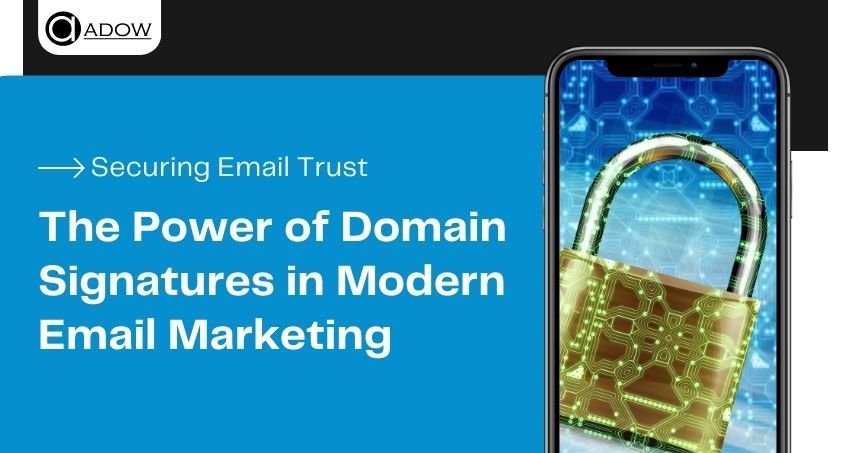Securing Email Trust: The Power of Domain Signatures in Modern Email Marketing
In the fast-paced digital landscape, email marketing remains a cornerstone of effective communication and customer engagement. However, with the growing concerns surrounding cyber security, spam, and phishing attacks, maintaining the authenticity and credibility of email communications has become more crucial than ever. This is where the concept of "Domain Signature" steps in, playing a pivotal role in ensuring that emails are not only delivered successfully but also perceived as trustworthy by recipients.
Understanding Domain Signature:
A domain signature, often referred to as DomainKeys Identified Mail (DKIM), is a cryptographic authentication method that helps verify the authenticity of the sender and the integrity of the email content. It involves adding a digital signature to the email header using encryption techniques. This signature is generated by the sender's domain and can be verified by the recipient's email server, ensuring that the email has not been altered during transit and that it indeed originated from the claimed domain.
The Components of Domain Signature:
- Public and Private Keys: When setting up DKIM, the sender generates a pair of cryptographic keys: a public key and a private key. The private key is kept securely on the sender's server, while the public key is published in the DNS (Domain Name System) records of the sender's domain.
- Header and Body Hashing: The DKIM process involves creating a hash of both the email header and the body. These hashes are then signed using the private key, generating a unique signature for the email
.
- DNS Records: The generated signature is added to the email header, and the public key is stored in the DNS records of the sender's domain. Recipient email servers can retrieve the public key from these records to verify the email's signature.
Benefits of Domain Signature in Email Marketing:
- Enhanced Deliverability: Email service providers (ESPs) and email servers use domain signatures to determine the authenticity of emails. Emails with valid DKIM signatures are more likely to be delivered to the recipient's inbox rather than being flagged as spam or sent to the junk folder.
- Credibility and Trust: A verified domain signature adds an extra layer of credibility to the email sender. Recipients are more likely to trust and engage with emails that have been authenticated, reducing the likelihood of falling victim to phishing scams.
- Brand Protection: By implementing domain signatures, companies can protect their brand reputation. Cybercriminals often spoof legitimate domains to deceive recipients; DKIM helps verify the legitimacy of the sender's domain, safeguarding the brand's image.
- Compliance and Regulations: Many industries are subject to regulations like GDPR, CAN-SPAM, and HIPAA, which mandate secure and authenticated communication. Implementing domain signatures aids in compliance with these regulations.
Setting Up Domain Signature:
1. Generate Keys: The first step involves generating a pair of cryptographic keys – public and private.
2. Configure DNS Records: The public key should be added to the DNS records of the sending domain, allowing recipient email servers to verify the signature.
3. Email Server Configuration: The email server needs to be configured to sign outgoing emails with the private key and to validate incoming emails' signatures.
4. Monitor and Maintain: Regularly monitor email deliverability and authentication reports. Rotate keys periodically for security.
Domain signature, in the form of DKIM, is a powerful tool in the arsenal of modern email marketing. It not only ensures the authenticity and integrity of emails but also fosters recipient trust and brand credibility. In a digital landscape where email-based attacks are becoming more sophisticated, businesses must embrace authentication methods like domain signatures to provide a safer and more reliable communication channel for their customers. By doing so, they not only enhance their email deliverability but also contribute to a more secure online ecosystem.
